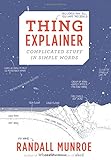Main Content: In this first part of a two-part series, Emily and Roger talk about corrective feedback for students.
Here are Emily's Correction Symbols:
CORRECTION SYMBOLS
Symbol: A
Meaning and Explanation: article
You are missing an article (a/an/the)
ex) I lived with host family and their dog. WRONG
ex) I lived with a host family and their dog. RIGHT
Symbol: AWK
Meaning and Explanation: awkward meaning
Your sentence is confusing. Rewrite it and clarify what you mean.
ex) Another difference is the amount of traffic the caused on the road. WRONG
ex) Another difference is the amount of traffic that is caused on the road. RIGHT
Symbol: CAP/LC
Meaning and Explanation: capitalize/lower case
You made a capitalization/lower case error.
ex) My name is emily. WRONG
ex) My name is Emily. CORRECT
Symbol: FRA
Meaning and Explanation: Your sentence is missing a subject, a verb, or both.
ex) _______ Are hungry in the morning. WRONG
ex) They____ hungry in the morning. WRONG
ex) They are hungry in the morning. RIGHT
Symbol: P
Meaning and Explanation: punctuation
You made a punctuation (, . ! ? ’)mistake or your need to add a punctuation.
ex) Are you happy. WRONG
ex) Are you happy? RIGHT
Symbol: PAR
Meaning and Explanation: parallel structure
You made a parallel structure mistake
ex) Public transportation and using a private car are different. WRONG
ex) Using public transportation and using a private car are different. RIGHT
Symbol: PL/SING
Meaning and Explanation: plural/singular
You made a plural/singular noun mistake.
ex) I have a lot of cat. WRONG
ex) I have a lot of cats. RIGHT
ex) Every students need to do their homework. WRONG
ex) Every student needs to do their homework. RIGHT
Symbol: RO
Meaning and Explanation: run-on
Your sentence is too long: has too many ideas or uses commas incorrectly.
ex) I am tired, and I miss home, and I miss my friends, I dislike homework. WRONG
ex) I am tired, and I miss home. I miss my friends. I dislike homework. RIGHT
Symbol: SP
Meaning and Explanation: spelling
You have the wrong spelling.
ex) I like to drink jous. WRONG
ex) I like to drink juice. RIGHT
Symbol: SS
Meaning and Explanation: sentence structure error
You made a
ex) I want to play. But I am tired. WRONG (compound sentence error)
ex) I want to play, but I am tired. RIGHT
ex) Even though I am busy. I will go to the gym. WRONG (complex sentence error)
ex) Even though I am busy, I will go to the gym. RIGHT
Symbol: SV
Meaning and Explanation: subject verb agreement
Your subject and verb do not match.
ex) She eat breakfast. WRONG
ex) She eats breakfast. RIGHT
Symbol: VF
Meaning and Explanation: verb form
Your verb form has some kind of mistake.
ex) I didn’t used the car. WRONG
ex) I didn’t use the car. RIGHT
Symbol: VT
Meaning and Explanation: verb tense
You have the wrong verb tense.
ex) Yesterday, I eat breakfast early. WRONG
ex) Yesterday, I ate breakfast. RIGHT
Symbol: WC
Meaning and Explanation: wrong word choice
Your choice of words is incorrect
ex) Due to Tokyo is the most population country, more people buy phones. WRONG
ex) Since Tokyo is the most populous country, more people buy phones. RIGHT
WIMB
Emily: "Egg"
Roger: "Bose Bluetooth/Wired Speakers"
https://www.bose.com/products/speakers/wireless_speakers/soundlink-bluetooth-speaker-iii.html#v=soundlink_mobile_iii_silver?srccode=cii_17588969&cpncode=43-116314164-2&perfsourceid=MC113165&src=K22350















